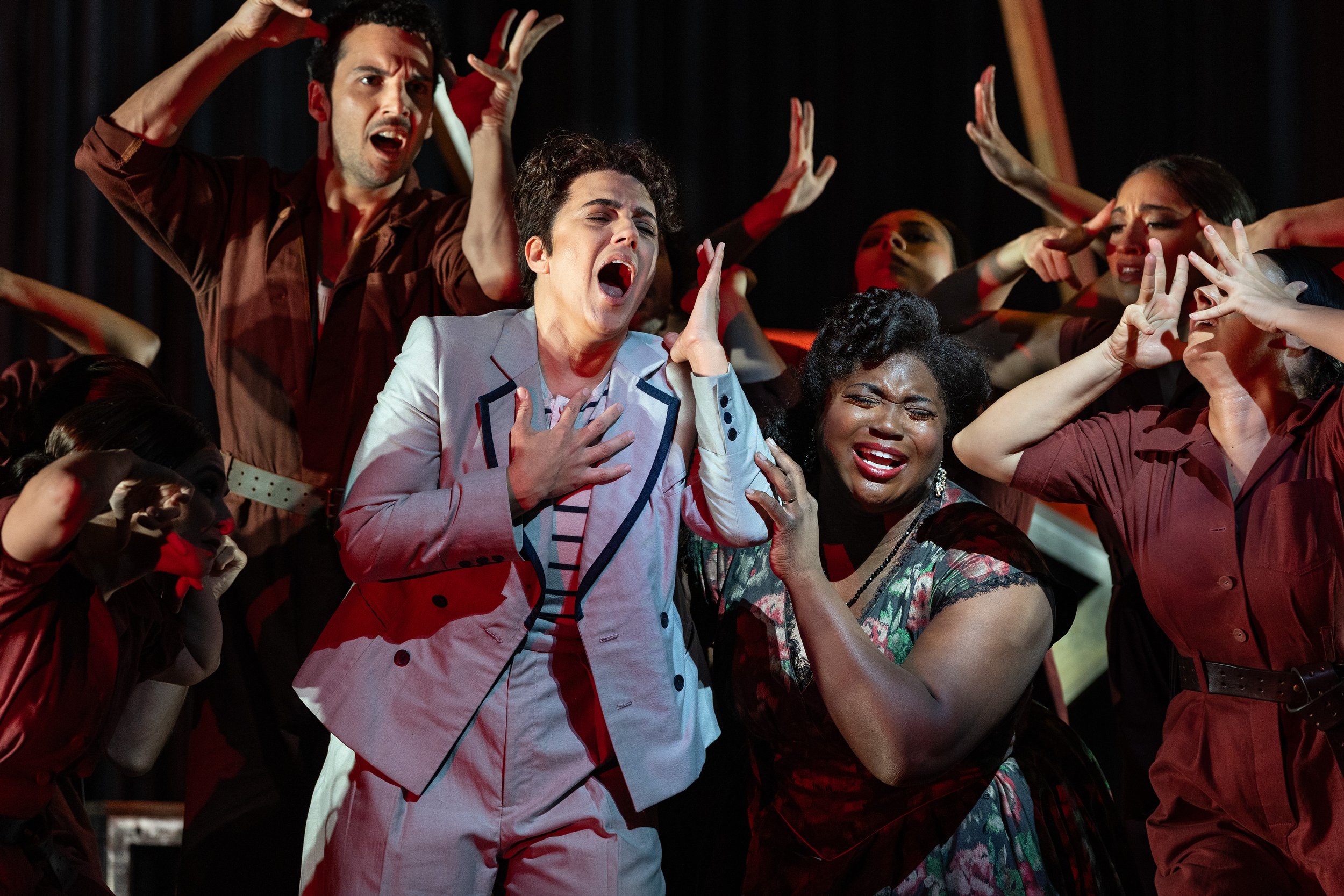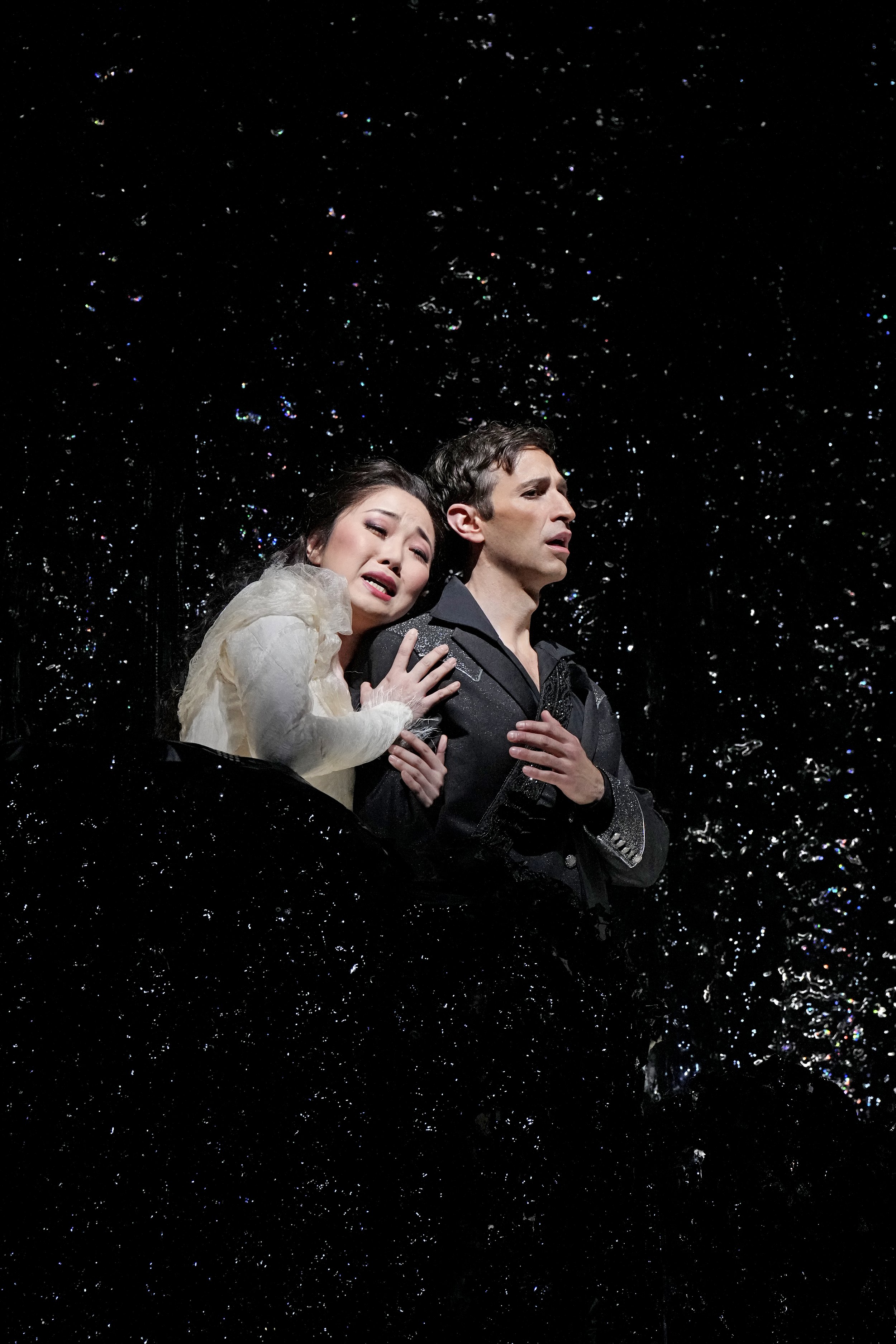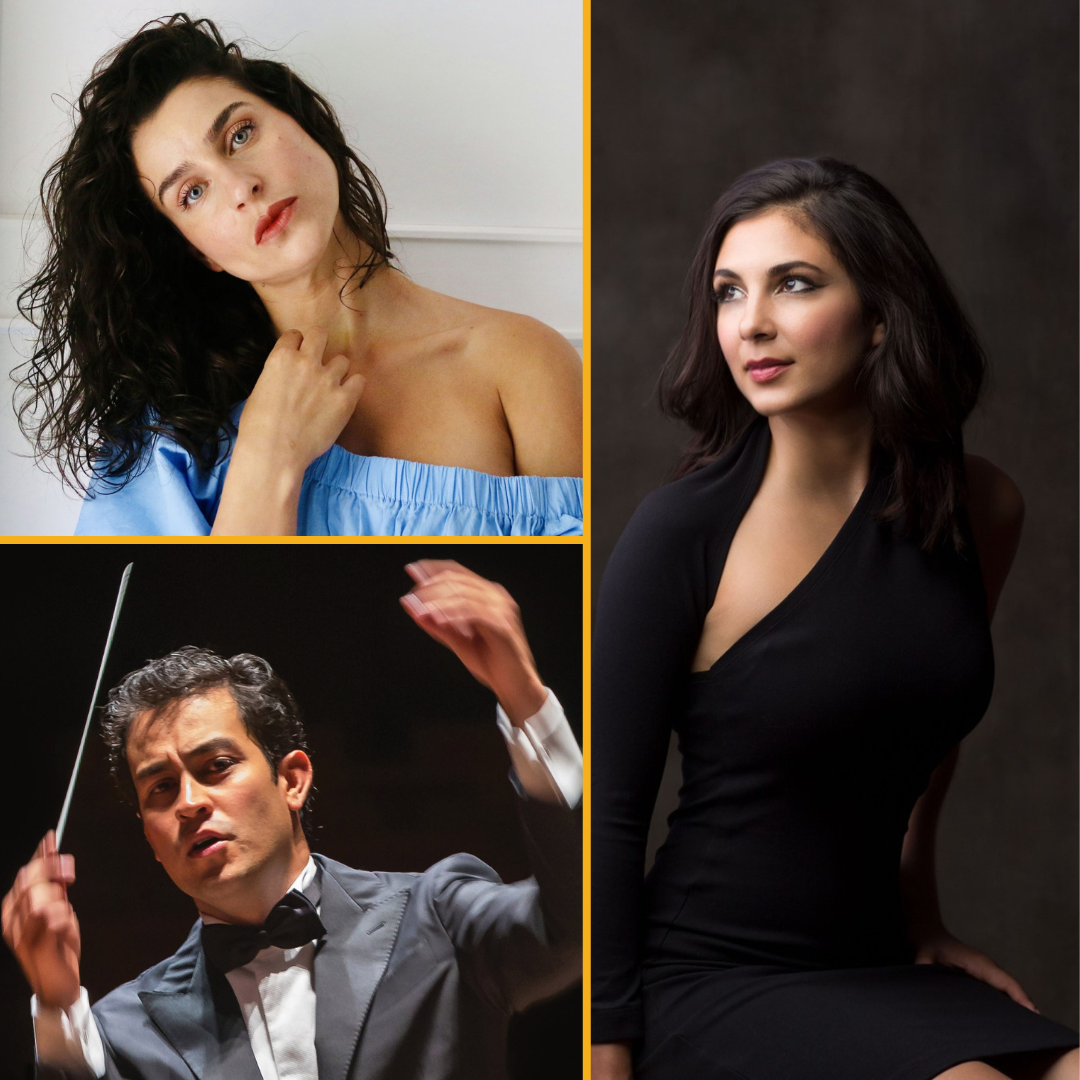An Interview With Elena Villalón
Elena Villalón (Jiyang Chen)
Fresh off her critically praised Metropolitan Opera debut last spring, Cuban-American soprano Elena Villalón now takes on Osvaldo Golijov’s exhilarating Ainadamar. She kindly took the time to answer some questions in between rehearsals.
This interview has been lightly edited for clarity.
Elena in the 2019 Laffont Competition (Ken Howard/Met Opera)
Unlike many opera singers, Elena “didn’t grow up in a musical or even music-appreciating household; my family only really played Cuban music.” At 14 years old, her voice began to develop, and she “began watching opera on YouTube, and fell in love with it!” From there, her success was not long in coming. She won the Met’s prestigious Laffont Competition in 2019 at just 21, and took third place and the Audience Prize at Plácido Domingo’s Operalia competition four years later. She shares words of wisdom for young singers facing competitions: “In my experience, almost no advice for competitions matter compared to the importance of being your own artist and bringing your own ideas to your repertoire. Of course style and accuracy are important, but as great as they are, we don’t want another fill-in-the-blank-famous-opera-singer, people want to be moved by who is in front of them at that moment. Crafting your own interpretive voice is the most important part of this process of becoming an opera singer, and the wonderful thing is [that] one does not have to be technically polished or well pedigreed; one can improve their interpretive skills at any stage.” This is precisely what helped Elena win the Laffont Competition; the contest’s executive director (Melissa Wegner) said that Elena “made you see her as the character, and as being able to suspend time the way it needs to happen in that moment.”
Elena spent three years as a Studio Artist at the Houston Grand Opera, which helped her grow “immensely — the training they offer is quite comprehensive: singing lessons, acting, movement, languages, mental health, and much more. They really aim to set up international careers and prepare singers in the program for that. I would say the best part of the program is the opportunities for their young artists to perform in mainstage productions. There is nothing else like actually doing it!” Even after her graduation, she’s continued to perform at the HGO, including in Le Nozze di Figaro as Susanna, who is “the character I’ve felt the most connection to without a doubt… the character writing itself is so veristic (thank you Mozart). It really feels quite aligned with how I am as a person, and how I would react and scheme and fight and love. In that way, Susanna can be dangerous for me — I really feel what she feels and she goes through a lot. That can put strain on the voice and body and so I’ve learned over the years how to pace that emotional wave.”
Elena in Orfeo ed Euridice (Ken Howard/Met Opera)
Last June, Elena made her official Met debut as Amore in Glück’s Orfeo ed Euridice, which she calls “a dirge, a lament for Euridice and the loss of love, future, and hope.” Critics said that she “sang with brilliance throughout, and a noticeable spunk” and “conquered every heart” with her “sparkling soprano,” with me noting her “confident, breezy presence onstage”. “Amor can be played [and has been depicted] many different ways,” but Glück gave him an irrepressible cheerfulness which Michael Mayer, the director of the Met’s Orfeo, emphasized to make Amore “a bit of comic relief to contrast the dark, heavy sets, and lamentations in the music and text. He arrives in a pink, bedazzled outfit and a bit flirtatious and flippant to the seriousness of what Orfeo is singing about. A breath of fresh air in the show!” As evidenced by her repeated hiring, the Met’s “commitment to excellence is unparalleled and I have been lucky to witness that from within the house — everyone who works there in every department is so competent, creative, and passionate, it is the most inspiring thing about the Met for me.”
For the years to come, her dream roles include the leads of La Traviata, Manon, Dialogues des Carmélites, L’Elisir d’Amore, Roméo et Juliette, and Thomas’ Hamlet, “but also include Slavic repertoire and lesser known bel canto pieces. I love both a dramatic and vocal challenge, and the opportunity to flesh out complicated women.” In terms of younger roles, she’s taken on Humperdinck’s Hansel und Gretel as the Sandman in the original German and later as Gretel in English. “The only reason I like singing Gretel in English,” she admits,” is to perform for English speaking audiences. The immediacy of language and connection when singing an audience’s native language is incomparable and palpable. [Still,] there is nothing like the richness and purity of German vowels, especially with the warmth of the orchestra underneath… so I do prefer the German!”
Elena (right) with Angel Blue in Ainadamar (Marty Sohl/Met Opera)
Spanish-language opera is on the rise, after centuries of unfortunate neglect by first composers and then opera companies. Spanish “is just as expressive as Italian, of course with its own idiosyncrasies and traditions, and I hope audiences enjoy and feel the passion and emotion in the text and music.” Right now, Elena’s starring at the Met as Nuria in Ainadamar, a whirlwind of an opera with oodles of dancing. She herself does not dance much in this production, but “[i]t has been a real pleasure and inspiration to see my colleagues — singers and dancers — incorporate music, dance and particularly flamenco into this piece. I think the conglomeration of these things is quite effective and a huge credit to this production.” Lorca is the foundation of the opera, his muse Margarita Xirgu the storyteller and link between generations, and Xirgu’s student Nuria the ultimate bearer of Lorca’s legacy, “not just of Lorca as a person but the ideals for which he fought and died: liberty, freedom of expression and love. Nuria represents the part of the story that continues those ideals.”
Elena went on to say that “I find bits of myself always in every character I play, I don’t know how to do otherwise.” In that case, if Elena is the future, like Nuria, then the future of opera is bright indeed, but she nevertheless correctly points out that “at times it can be quite concerning… I think there is a particular stereotype of opera of elitism that is prevalent in our culture. And there is some truth there! My favorite people to talk to are those who visit an opera once and don’t return. I learn a lot about their tastes and unfiltered perspectives, which can be really educational. It makes me wonder, what is the difference between opera and films, for example? We will watch a horrible film but that doesn’t put us off from watching or trying films in the future. We need that kind of attitude in the public, and it is incumbent on us to develop that.”
For her, the answer to keeping opera thriving is deceptively simple: “Show operas to children! … Unfortunately, that is something that falls on arts organizations now, as the arts education of the 20th century in the US that produced generations of classical music appreciators, has been diminished.” Part of the scarcity of children-oriented opera initiatives has to do with funding, as “there are real deficits that are affecting the arts industry as a whole.” Regrettably, there also appears to be a view among many top opera companies that it is not their responsibility to reach out to children. This can be seen in the increasingly adult content of opera productions, narrowing the chance that parents will take their kids to see these operas. “Be really creative about programming what children are especially responsive to,” Elena counsels. “They are the next generation, and are also unencumbered by bias or stereotypes of classical music. Children love grandiose, dramatic, funny, loud, crazy things, and opera is all of that! Capitalizing on that will be the path forward.”







